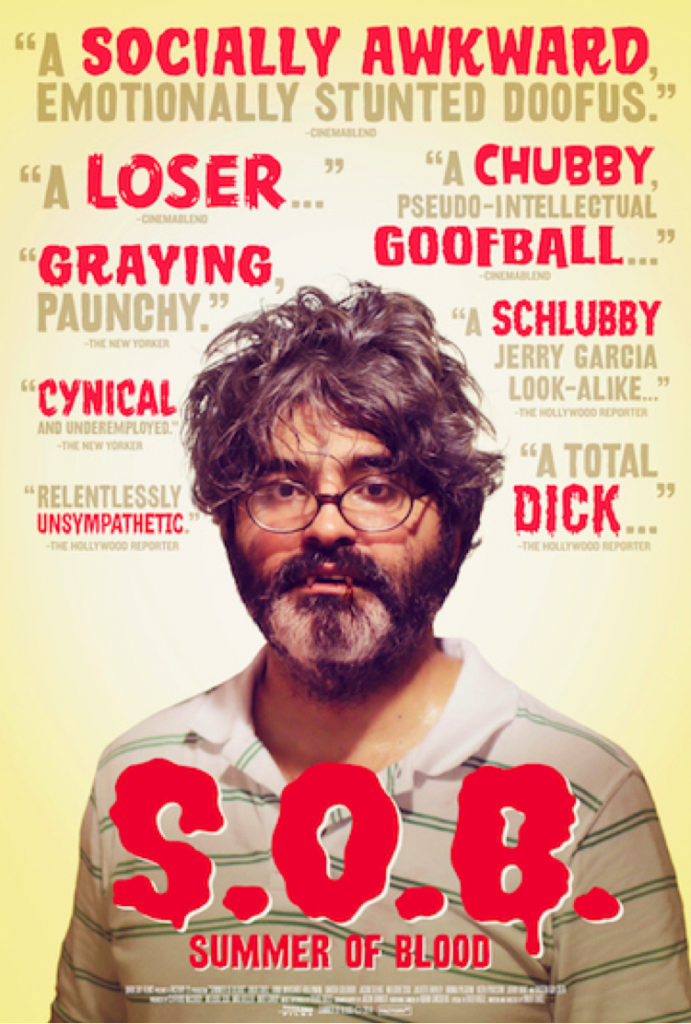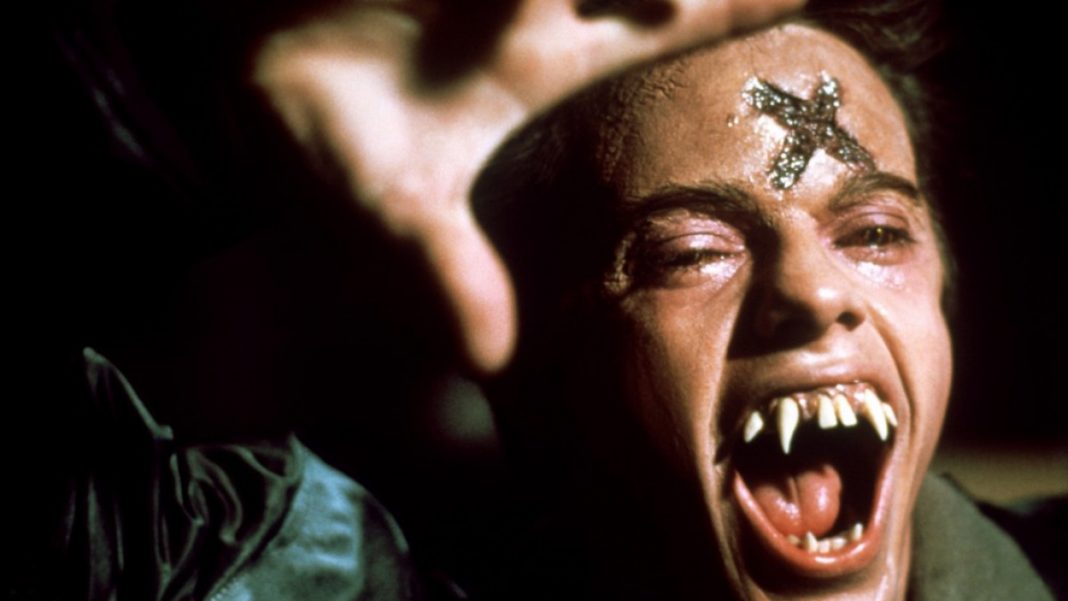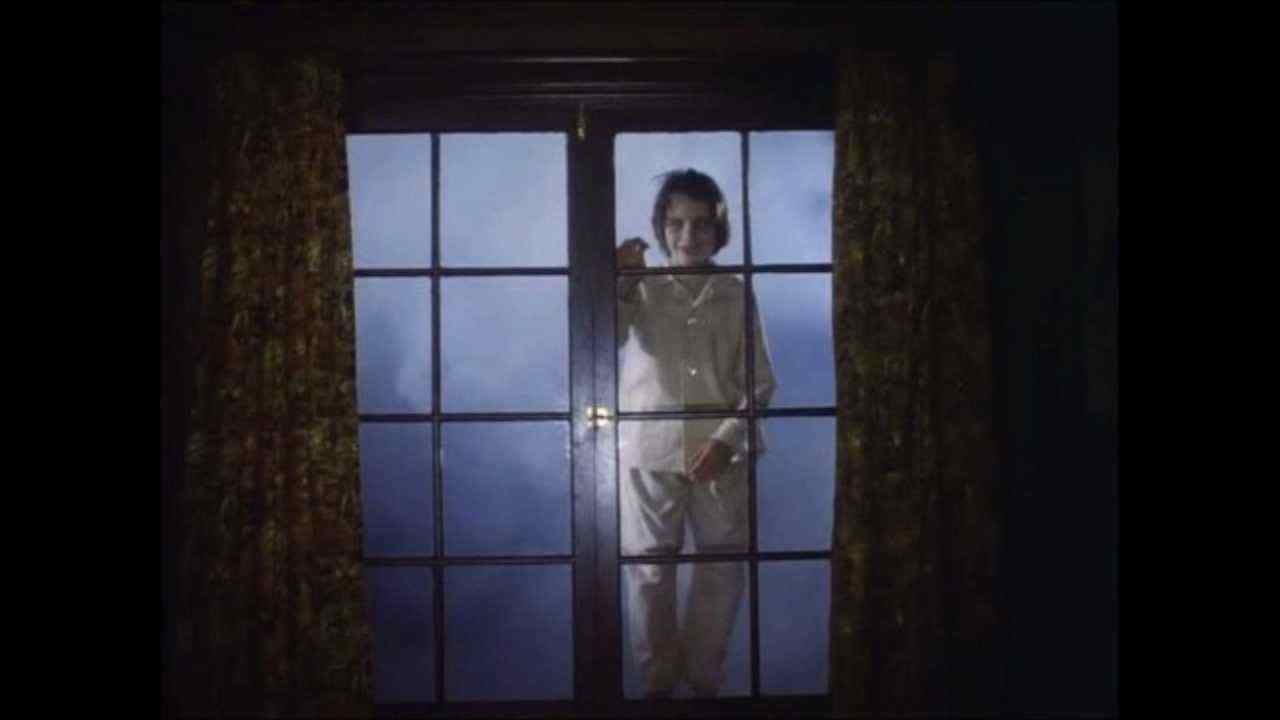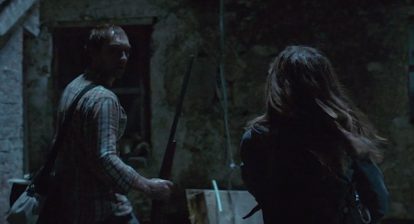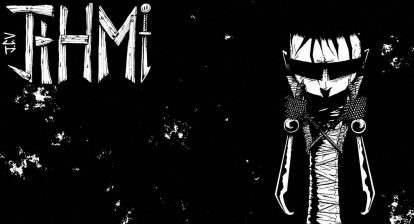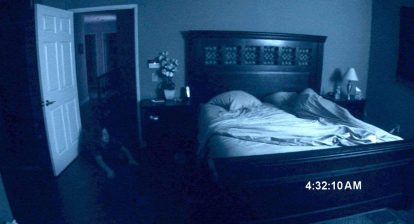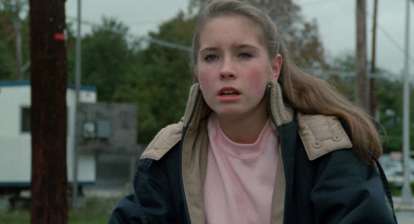[soliloquy id=”10505″]
Onur Tukel took the time to speak with us about his hilarious new horror comedy Summer of Blood (review). He opened up to us about observing the delicate balance between horror and comedy, how he based certain aspects of his lead character on himself, and also discussed how he was able to deliver a well-made film on a micro budget.
Tukel’s new film Summer of Blood follows Erik, a lazy, delusional, pompous creep who has been dealt a much better lot in life than he deserves. When his attractive, young girlfriend proposes to him, he turns her down and is subsequently put out on his ass. A newly single Erik tries his luck in the dating pool and finds that his charms do not have universal appeal. But that all changes when he is bitten by a vampire and suddenly becomes irresistible to the opposite sex. Now his only problem is finding a steady supply of human blood to quench his insatiable thirst.
Wicked Horror: Erik is a really hilarious and well-crafted character. Can you give us a bit of insight on his backstory?
Onur Tukel: He’s in early forties and I’m in my early forties. So his fears are my fears. He’s at this age where he has to decide if he’s going to commit to something other than himself. He’s having to make decisions about whether or not he’s going to get married and have a family. These are decisions that I’ve been avoiding my whole life. When you’re young, you don’t think about these things. You don’t think about death. You don’t think about the consequences of your actions. But as I get older, these things are more present than ever. Am I going to make something of my life? Am I going to have a family? Or am I going to continue to be a selfish idiot who only thinks about himself and doesn’t take his job too seriously? The vampire is a metaphor for selfishness – remaining locked in this infantile state of a man child existence. Erik is at this place where he doesn’t want to be married because he thinks it’s going to be the death of individuality and his childlike splendor. He feels like he’s going to have to grow up if he gets married and he’s avoiding that at all costs. When he gets bitten by a vampire it allows him to stay suspended in this selfish kind of world. But he realizes that an eternity of that kind of lifestyle is horrible compared to the alternative of growing up and having a family. These are things that I’m afraid of. I’m at a crossroads and I’m bad at relationships. Once I get to a certain point in a relationship I want to flee. The end result of a relationship is marriage and that is a scary thought to me. Growing up is a scary thought to me. Being motivated by money and having to take care of a family by working a job that I don’t like is a scary thought to me. All these things are in the movie. I’ve always tried to live a life free of the constraints that normal people have to go through. I work a freelance job instead of a 9-5 job. I can get up whenever I want and go to sleep whenever I want. I don’t have to make a lot of money because I don’t have an expensive apartment or things that I have to take care of. That keeps me relatively content and also free to do whatever I want. I’m free to go out of the country and free to go to film festivals or to make low budget movies. I’m free to runs run around and do silly things. I don’t think it’s admirable. I don’t think there’s anything noble about it. The film is an indictment against my own shortcomings. I like who I am. I don’t know if I would be a good husband or a good father. I think that I’m too set in my ways. Maybe I’m too comfortable. I don’t want that obligation. Erik is me. His backstory is me. A man who doesn’t take anything seriously but understands that growing up is a real thing and that death is a real thing. As you get older, you run the risk of being alone. You face the risk of being the overweight loser who’s a little too old to be at the bar and should be at home with a family or something.
WH: You really play him to perfection. He’s so delusional that the viewer almost reaches a point of feeling sorry for him but then he does something so inexcusable that you have to go back to hating him.
OT: I’ve always been sort of a provocateur. I like to say things that wake people up a little bit and snap them out of there stupor – make them defend their own convictions. Erik is amusing himself. I think he’s bored. He’s not an intellectual so he can’t really talk about anything intellectual. So he has to say things that are sort of insane in order to get a rise out of people and push people’s buttons. I think Erik finds amusement in that. Erik’s the kind of guy that I don’t think I’d want to hang out with one on one but he would be the funny, obnoxious guy at the bar that you would like to laugh at and maybe even drink with. But you don’t take him too seriously. I think there’s a likability about that. But there’s something untrustworthy about the guy. It says something about likability.
WH: Nearly every vampire film has its own unique lore and mythology. Did you draw from any literature or films in particular when scripting Summer of Blood?
OT: I subconsciously took from a lot of other things. I’m not a huge vampire enthusiast. But I was making my first vampire film. I bought this big book about vampires. I read up about everything I could imagine, like Lilith and the succubus and all about vampire mythology. I’ve seen a handful of vampire films. I remember loving Fright Night and Vamp when I was a teenager. Also, Vampire’s Kiss with Nicolas Cage. I probably subconsciously took from everything that I’ve seen, both vampire films and non vampire films. Things that I like and connect with, I’ll put into the movie. I don’t remember where the hypnotizing came from. That’s a bug part of the movie. I can’t remember specifically where that came from. But it’s probably a common trait in vampire films. Vampires have always been seen as being able to bed a lot of women and having seductive qualities. That’s part fantasy but also comes with the fear of marriage. I felt like it was an easy fit. If you’re going to reject marriage. The opposite of marriage is to be promiscuous and sleep with a lot of women. That fits into the vampire mythology and that seemed to fit pretty well. There’s the fear of the sun. When I’m being burned, we didn’t have the money to make my skin burn or to show smoke rising off my flesh. I don’t die from the sunlight but it was a chance to have a few cheap laughs and be silly.
WH: You’ve suggested that you made the film for a really small budget. But I found that the production values and visual aesthetic don’t really betray the film’s budget as easily as a lot of micro budget productions. What helped you stretch your budget so effectively?
OT: I think what really transcends the film is the acting. I think if a movie has bad acting that everything would seem low budget and shitty. I like that you said that about the aesthetic. I think the fact that the cameras we used can pick up lots of information in low light. Our cinematographer Jason Banker has a good eye for using natural light. When we shot in the streets, we would find locations that already had good lighting. Jason knowing what would look good on camera was crucial. Also having decent special effects was helpful. If you’re going to have a movie called Summer of Blood, you have to deliver. Having a couple of good blood scenes elevates the production in a lot of ways. We took a lot of time to make sure that there was a color palate throughout the movie. So we took the time to coordinate that to make sure that it didn’t look as low budget. Again, the acting elevates the level of the entire production. If you have actors that are extremely professional and natural it’s easier to watch and take it as a legitimate film.
WH: It seems to be difficult for a lot of filmmakers to walk the line between horror and comedy but I think you did a great job of succeeding at both. How did you ensure the success of that balance?
OT: In New York, there’s a lot of crazy things on the street. There’s a lot of violence and lots of people sleeping. There are people that have been injured falling down the subway steps. Oftentimes if you don’t have the time to help or there’s already someone on the scene, you just keep walking. It becomes very matter of fact. I’ve seen so many crazy things in New York. Also, I’m just a sucker for a good horror comedy. One of the first films I ever saw that turned me onto the power of comedy and gore was American Werewolf in London. I feel like horror and comedy go hand in hand. I think horror films allow us to accept death a little easier. In the horror films that I loved growing up, there was a good dose of comedy in those movies. I think that maybe it’s a way to accept death or maybe not be so scared of it. Maybe that’s why the gorier it is and the more insane the kill, the more we relish it. The idea of really dying is so terrifying but most people are smart enough not to think about it. But there’s something about watching it that puts our mind at ease. I love doing comedy and I love laughing. And I wanted to make a movie that had some horrific aspects.
